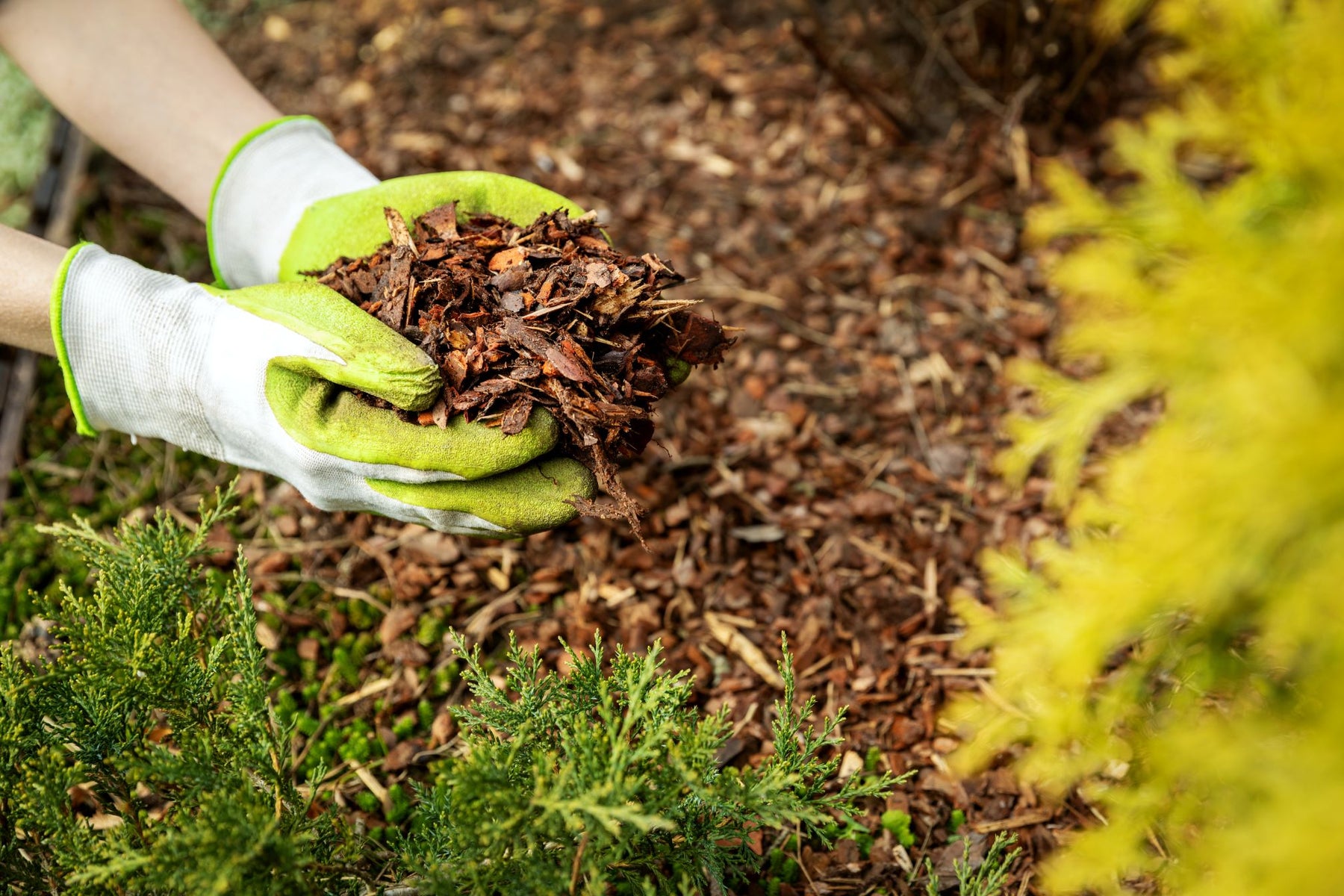
Mulch or Compost: Which Is Right for Your Yard?
When it comes to maintaining a lush, healthy garden, understanding the distinction between compost and mulch is paramount. Both play vital roles in enriching your soil and promoting plant health, yet their functions are not interchangeable. Misapplying these organic materials can result in less-than-desirable outcomes for your garden beds. This article will demystify the differences between compost and mulch, guide you on when to appropriately use each one, and reveal scenarios where a combination of both could be beneficial for your landscape.
Whether you're a novice gardener or a seasoned green thumb, keep reading to find out what's best for your landscape. Here's to greener, more flourishing gardens!
What is compost?
Compost is essentially organic material in various stages of decomposition, which can consist of anything from:
- kitchen scraps
- grass clippings
- leaves
- manure
- weeds
- plant debris
The decomposition period of compost depends on several factors, including the nature of the material itself—this process can range from two weeks to two years. Crucial to this process is the proper balance of 'green' and 'brown' in a compost pile, as well as the correct levels of moisture and aeration, regular turning of the pile, its size, the ambient temperature, and the presence of worms and microorganisms that facilitate the breakdown of the compost.
Once fully decomposed, compost transforms into organic matter or humus, unrecognizable from its original components. Mature compost is characterized by its dark brown color and crumbly texture, akin to soil particles, and it emits an earthy smell.
What is mulch?
Mulch, in essence, can be any material that you use to cover the soil's surface. It's crucial to note that while all compost consists of organic materials by definition, not all mulch is organic. The most commonly used types of mulch, which are often sold in bulk or bags at garden centers, include wood chips or shavings, hardwood, and softwood bark. Other organic mulches encompass pine needles, pine cones, hay, straw, cocoa, rice, buckwheat hulls, crop residues, tree leaves, and even grass clippings.
For those who prefer synthetic options, there are man-made mulches such as rubber, plastic sheeting, or geotextile, including landscape fabric, cardboard, and newspaper. While the latter two do decompose over time, plastic simply breaks down into smaller pieces over a prolonged period, eventually turning into microplastics that contaminate our environment.
Lastly, there is a third group of mulches that, although they are natural, are not degradable. This category includes crushed seashells, gravel, pebbles, stone chips, and slate. Each type of mulch carries its own distinct set of advantages and considerations—it's essential to align your choice with the specific needs of your landscape.
When to use compost vs. mulch
As discussed earlier, compost adds nutrients to the soil and improves its overall quality. It's therefore best used on a seasonal basis or before planting. Its various benefits include:
- enriching soil
- improving drainage
- creating porous soil
- retaining moisture
- reducing erosion
- promoting beneficial bacteria and other microorganisms that break down organic matter further
Using compost is advantageous for nearly any garden, but it's more valuable where the soil quality is low. Newly planted gardens, as well as vegetable and flower gardens, require nutrient-rich soils to grow vigorously. If you're uncertain of your soil's quality or content, have it tested for pH levels and nutrients as a first step.
In contrast, mulch primarily controls weeds. It functions by depriving weed seeds of sunlight, thus preventing germination, similar to the way that compost eliminates plant diseases by immobilizing them. Other advantages of mulch include:
- reducing soil compaction
- conserving moisture
- moderating soil temperatures
- preventing erosion from heavy rainfall and wind
- making a garden bed look neat, tidy, and appealing.
Which mulch is right for your yard?
As you can see, choosing the correct type of mulch depends on its intended purpose. For example, inorganic materials such as crushed seashells or pebbles are best used for decorative purposes. Pea gravel or other stone chips can be used as mulch around trees, while crushed rock can provide excellent drainage in flower beds.
Bear in mind that pine needles are better suited for acid-loving plants such as azaleas, blueberries, hydrangeas, camellias, ferns, and rhododendrons since they slightly lower the soil's pH. Pine needles also resist compacting, allowing better airflow and drainage over time. Whatever type of mulch you decide on, the general rule is to apply a layer between 2-4 inches deep for optimal results.
Is compost or mulch better?
If your goal is to increase the production of food plants, get more blooms on your flowers, or encourage your plants to grow faster, use compost. If your goal is to limit weed growth, control erosion, and retain soil moisture, use mulch. Furthermore, if you want the benefits of both organic materials, use compost as a base layer and mulch on top.
The beauty of gardening is that it's entirely personal—what works for one gardener may not work for another. Therefore, experiment with different types of mulch and compost combinations over time to find your perfect solution!